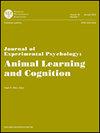联想学习有助于蚂蚁保持怨恨。
IF 0.9
4区 心理学
Q4 BEHAVIORAL SCIENCES
Journal of Experimental Psychology-Animal Learning and Cognition
Pub Date : 2025-09-22
DOI:10.1037/xan0000404
引用次数: 0
摘要
评论一篇文章由msamulanie Bey等人(2025)。Bey等人最近的一项研究表明,黑园蚁(Lasius niger)也依靠经典条件反射来对抗外来同种蚂蚁。这项研究进一步揭示了经典条件反射在蚂蚁生活中的作用。在德国弗莱堡Volker Nehring小组的研究中,Bey等人首次在实地记录了在焦点巢穴周围30米范围内,焦点蚂蚁对来自附近巢穴的非巢友的攻击比来自更远巢穴的蚂蚁更具攻击性。第一个控制可以被称为非条件刺激(US)条件。训练有素的蚂蚁被暴露在一个陌生巢穴的蚂蚁面前,这个巢穴的蚂蚁是训练有素的蚂蚁以前从未遇到过的。如果仅仅暴露在US环境中就会导致更有攻击性的打斗,而不考虑条件刺激(CS)-US的关联,那么经过训练的焦点蚂蚁应该从第一次遇到来自未知巢穴的蚂蚁时就具有攻击性。暴露在一个未知的非巢蚁(作者称这组蚂蚁为非巢蚁)面前,并不比暴露在一个巢蚁面前更容易引发攻击性。这是一个成功的、有启发性的控制。一个不太成功的控制是所谓的CS-only条件。作者想把焦点蚂蚁暴露在一个巢穴中没有攻击性的成员中。科学家们通过切除它们的触角来安抚这些不筑巢的蚂蚁,触角中包含着用来闻其他蚂蚁的化学传感器。没有感觉到焦点蚂蚁中有陌生的蚂蚁,这些失去知觉的刺激蚂蚁保持不具攻击性。在多次遇到不具攻击性的蚂蚁后,当被攻击的蚂蚁与来自同一巢穴的一个完整的已知非巢蚁进行测试时——这些刺激蚂蚁确实会打架——被测试的蚂蚁只表现出低水平的攻击性。这种控制的问题在于膜翅目昆虫的触角不仅是嗅觉和味觉的感受器,而且还充满了化学物质和碳氢化合物,人们常说这些化学物质和碳氢化合物显示了巢穴的嗅觉特征。Bey等人的讨厌邻居研究显示了一个厌恶条件反射的案例。关于黑园蚁的讨厌邻居效应,有一个悬而未决的问题是功能性的:讨厌邻居是有益的吗?也许对邻居的攻击性会让对手甚至不敢接近对方,从而节省时间和精力。也许这对领土防御很重要。总之,蚂蚁已经被证明可以学习很多东西。Bey等人的研究强烈表明,经典条件反射形式的联想学习也有助于黑园蚁更好地对抗陌生蚂蚁。(PsycInfo Database Record (c) 2025 APA,版权所有)。本文章由计算机程序翻译,如有差异,请以英文原文为准。
Associative learning helps ants to hold grudges.
Black garden ants Lasius niger become more aggressive with repeated encounters of ants from another nest. Recent experimental evidence suggests that associative learning contributes to holding such a "grudge." (PsycInfo Database Record (c) 2025 APA, all rights reserved).
求助全文
通过发布文献求助,成功后即可免费获取论文全文。
去求助
来源期刊

Journal of Experimental Psychology-Animal Learning and Cognition
Psychology-Experimental and Cognitive Psychology
CiteScore
2.90
自引率
23.10%
发文量
39
期刊介绍:
The Journal of Experimental Psychology: Animal Learning and Cognition publishes experimental and theoretical studies concerning all aspects of animal behavior processes.
 求助内容:
求助内容: 应助结果提醒方式:
应助结果提醒方式:


